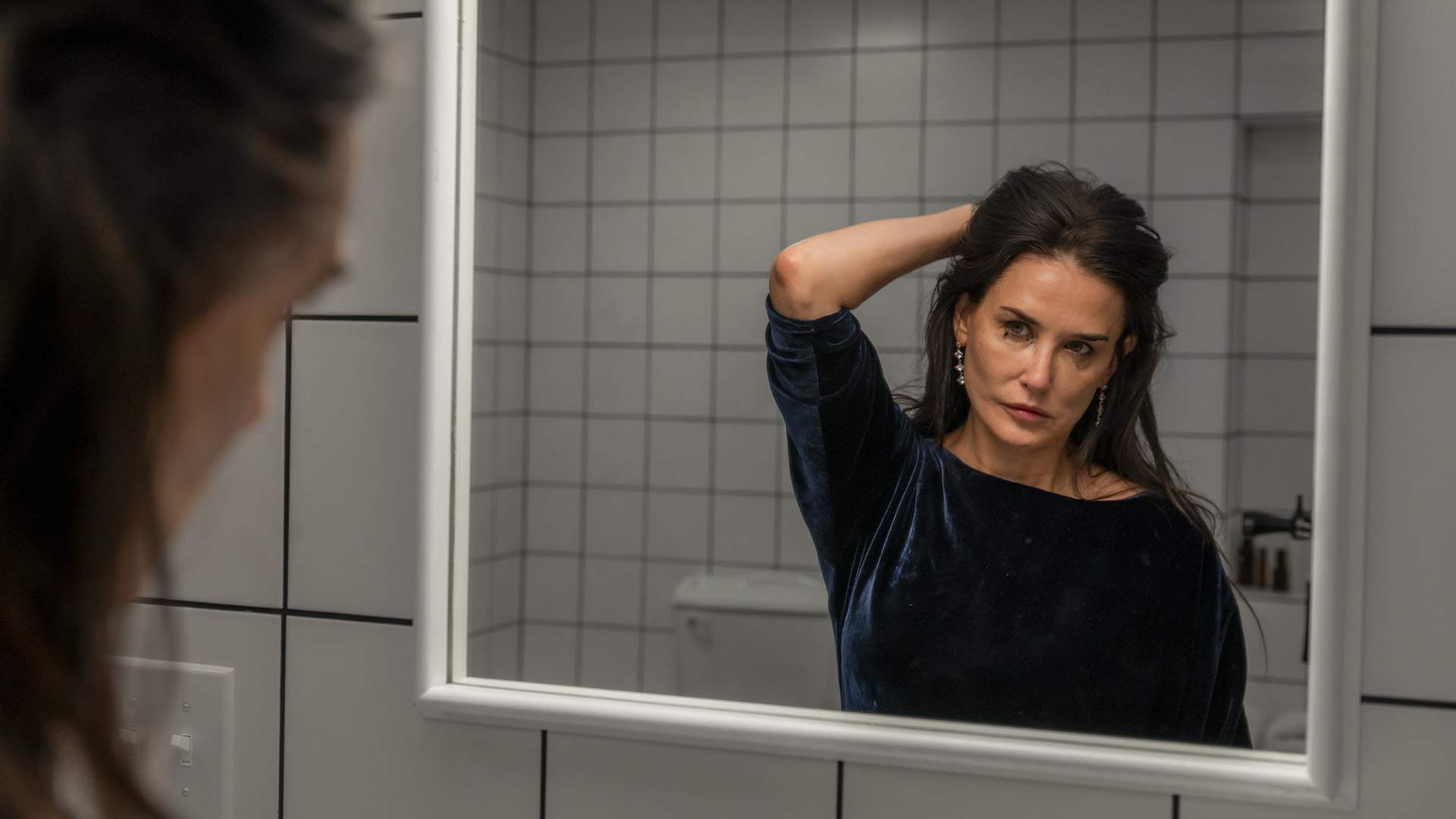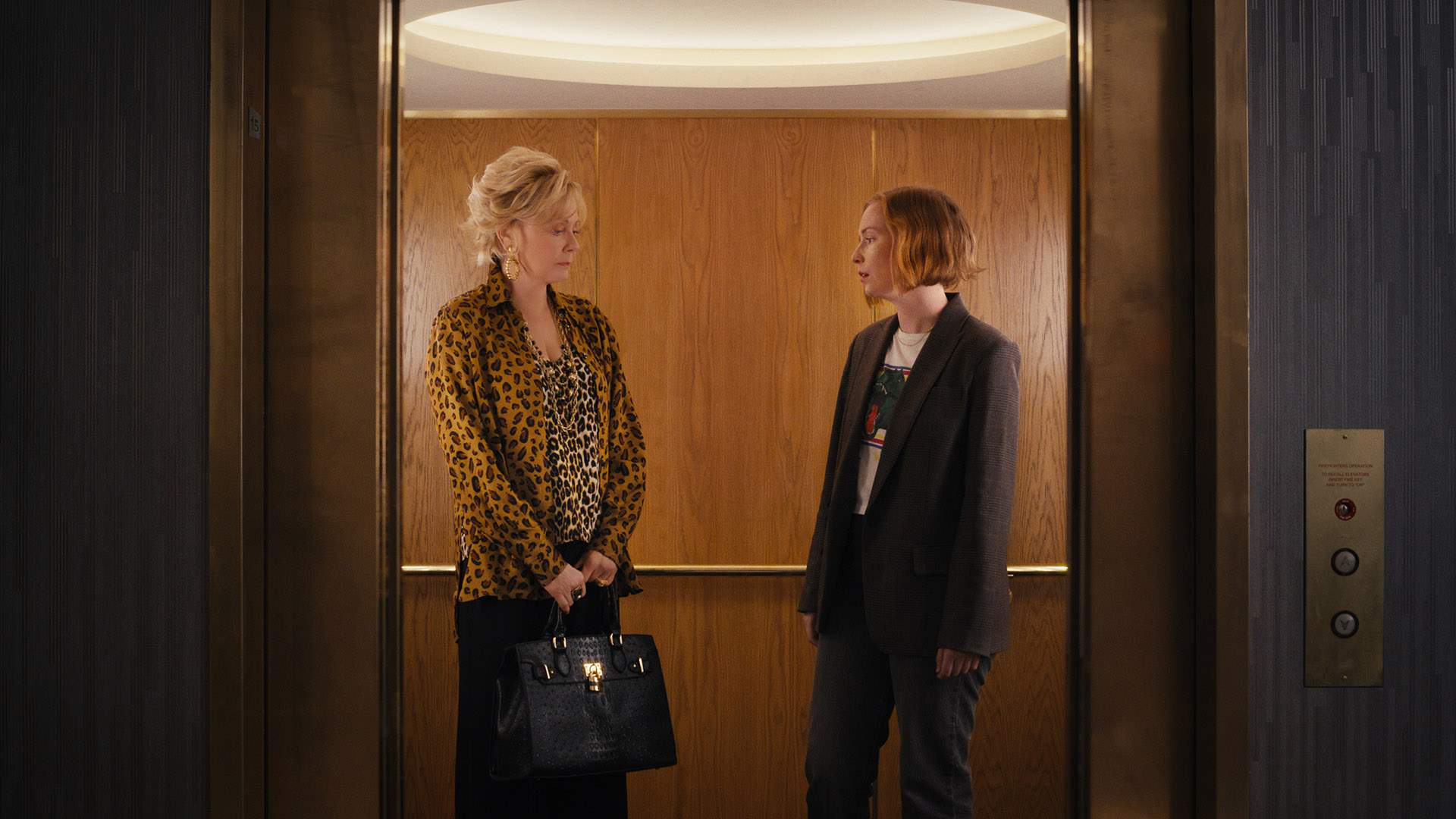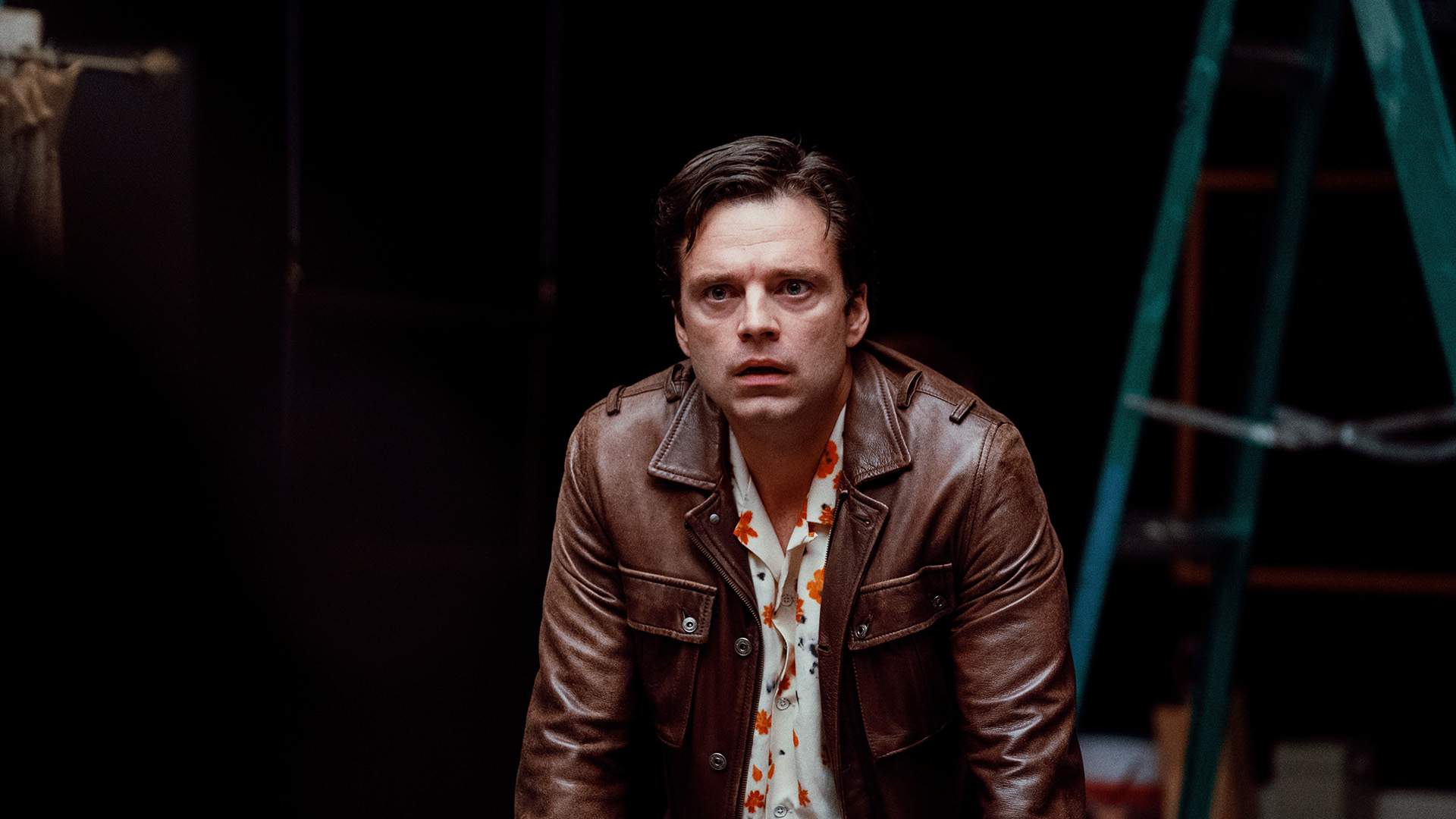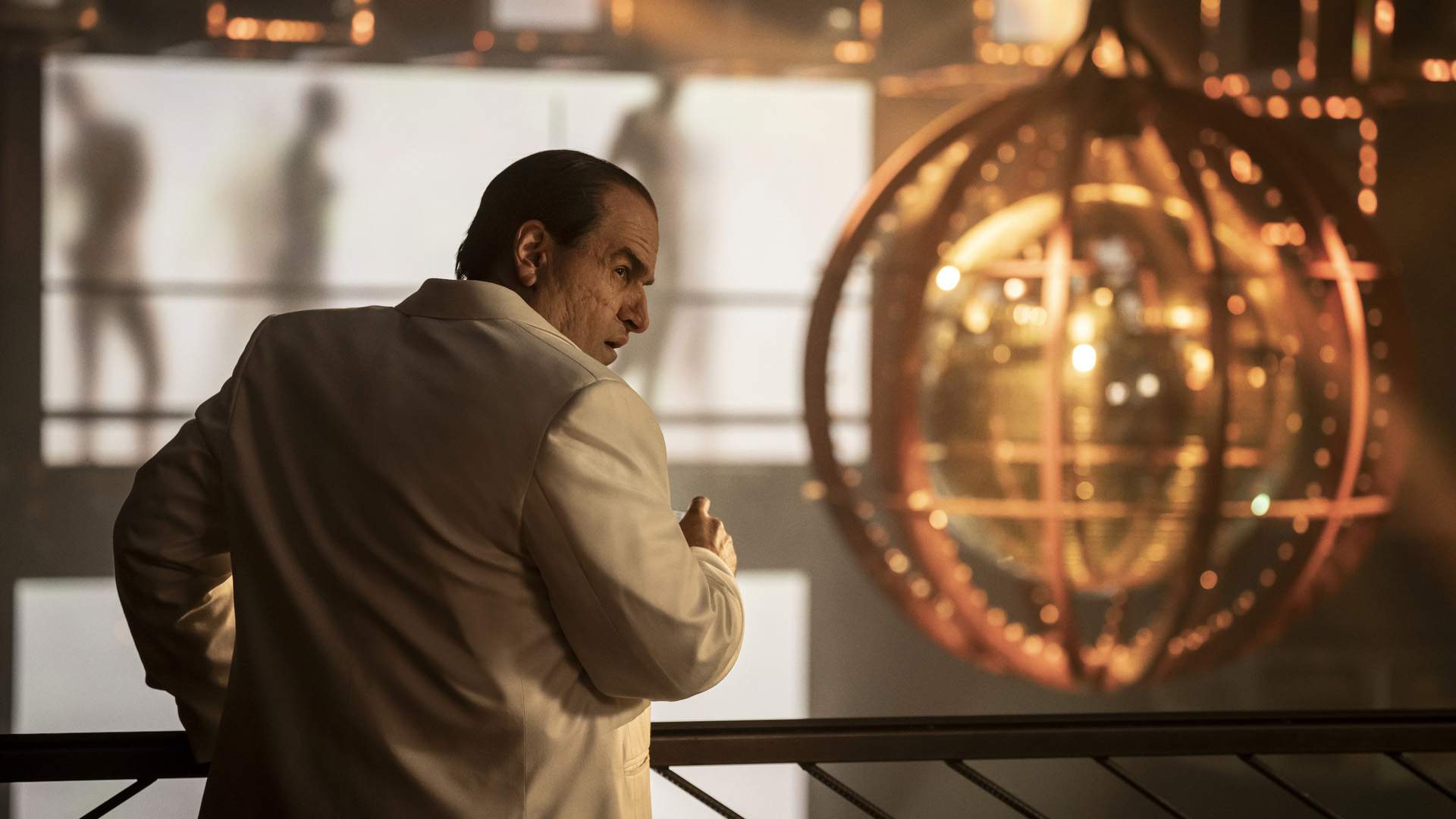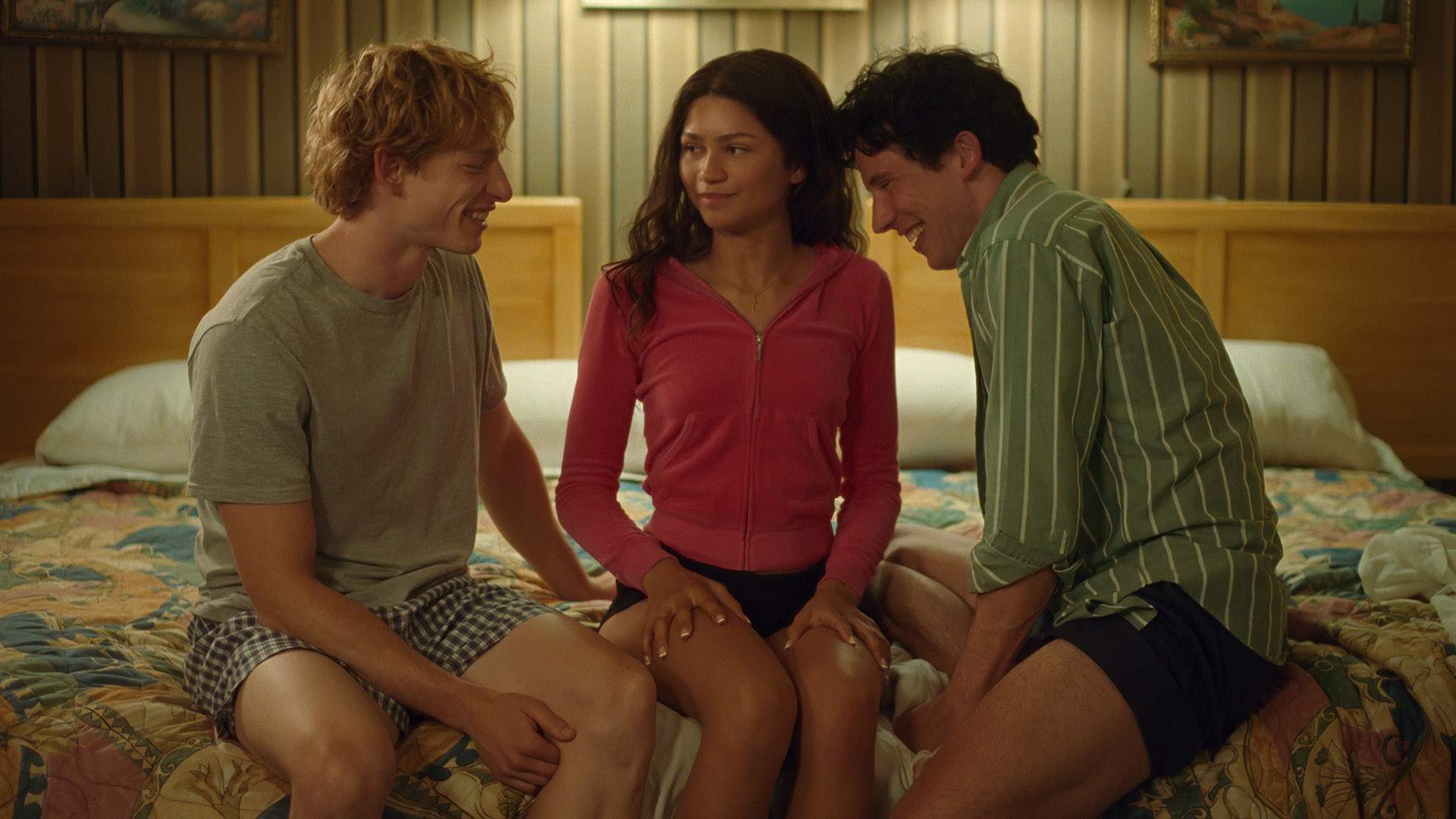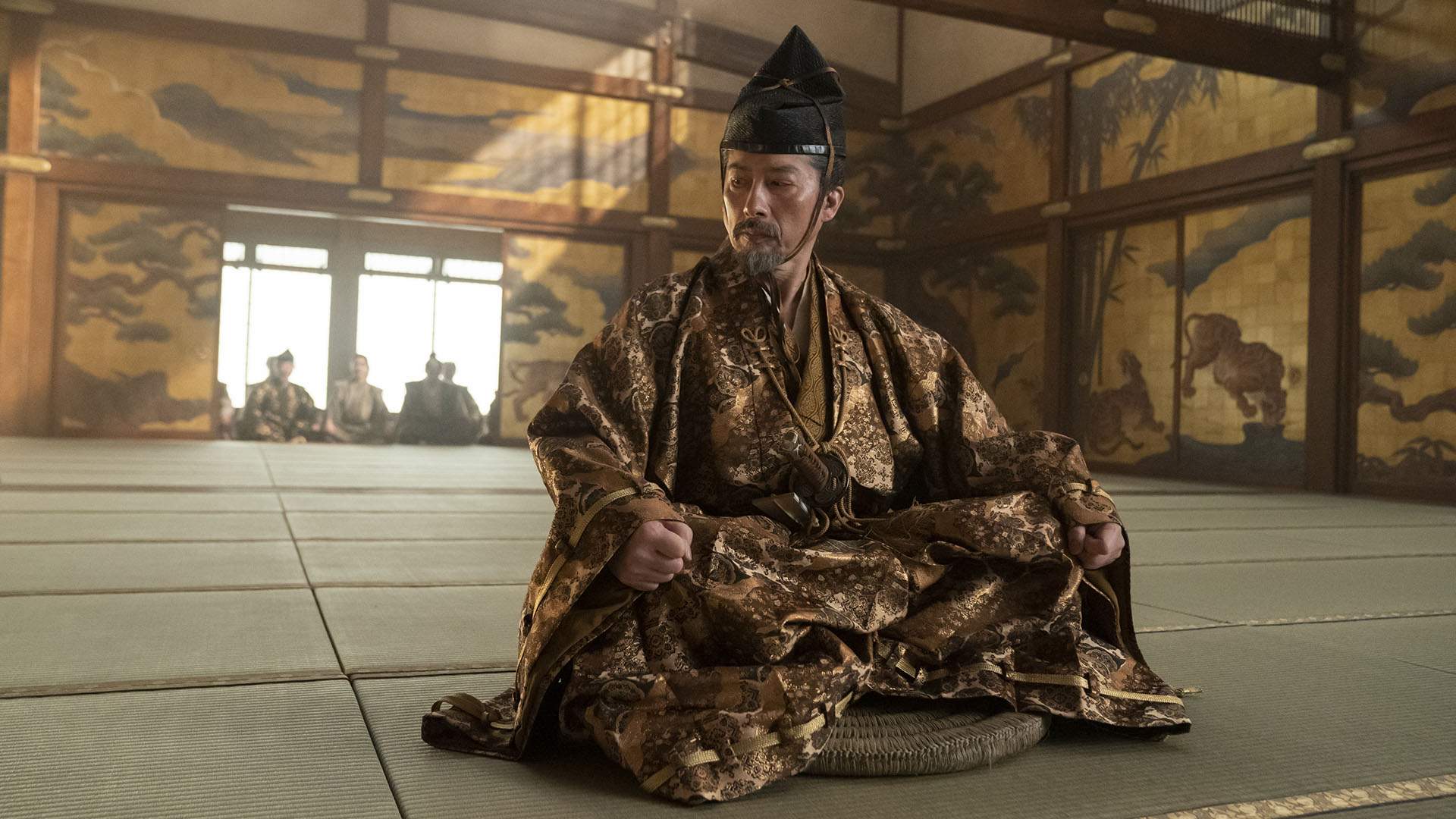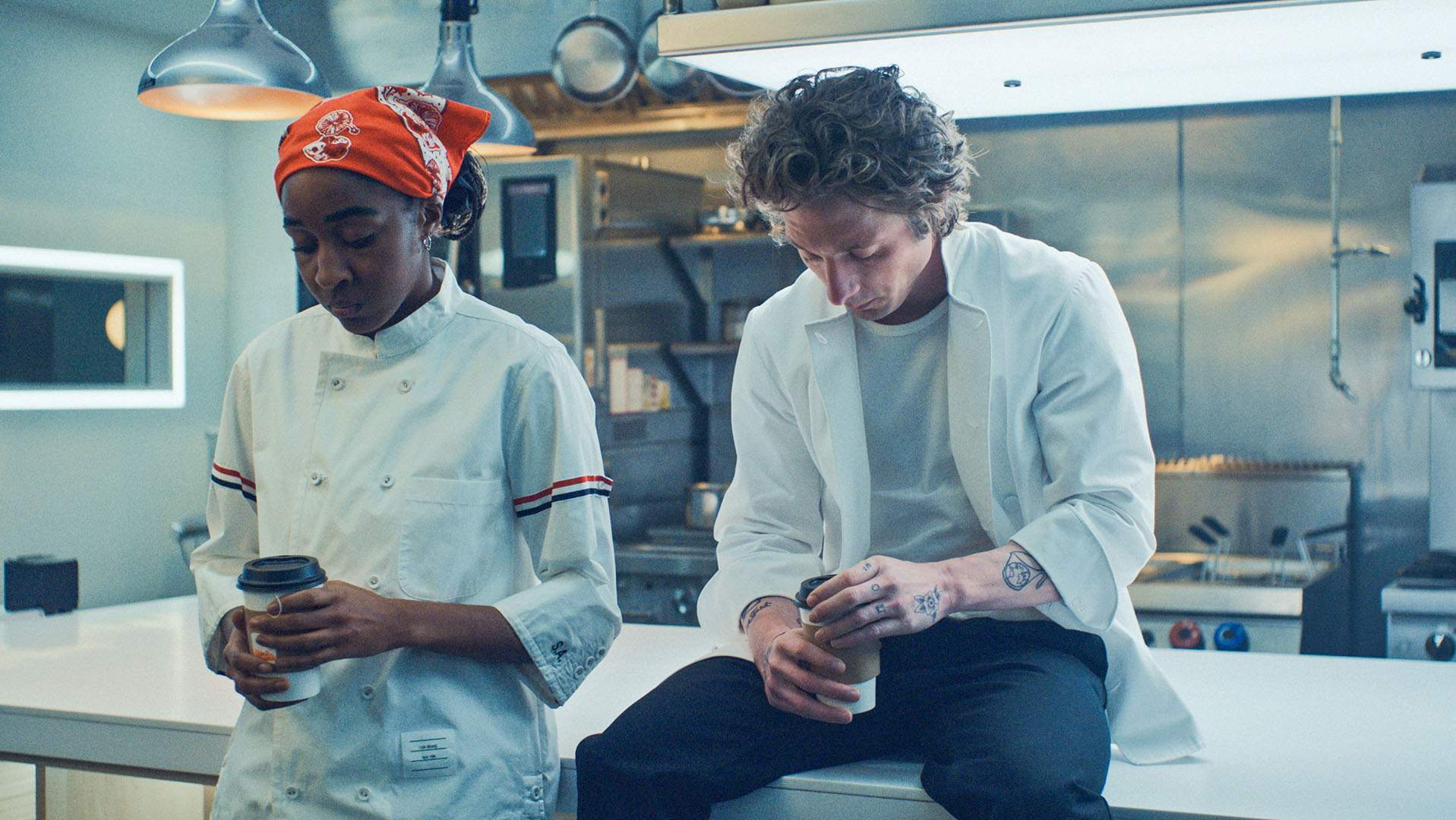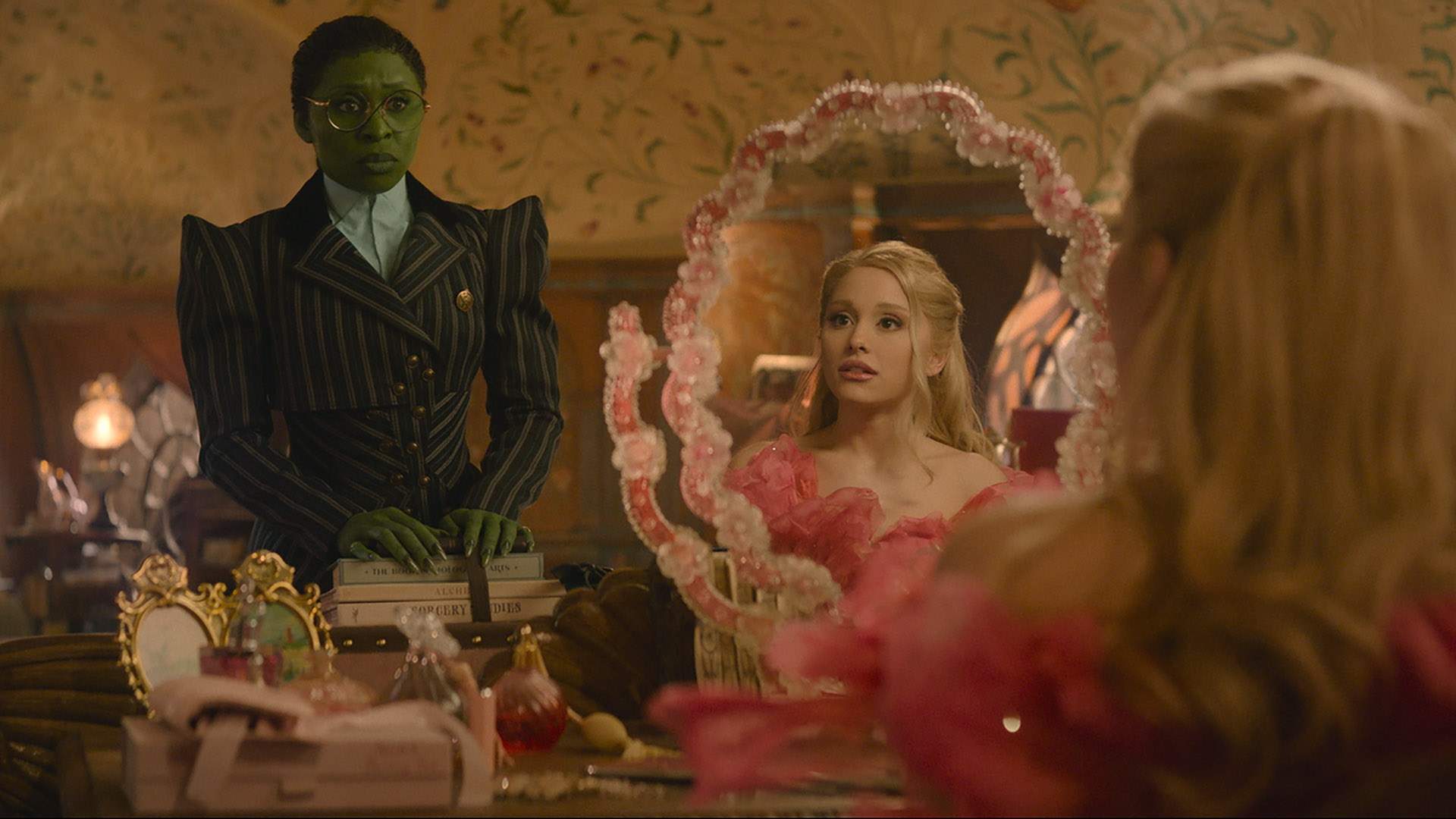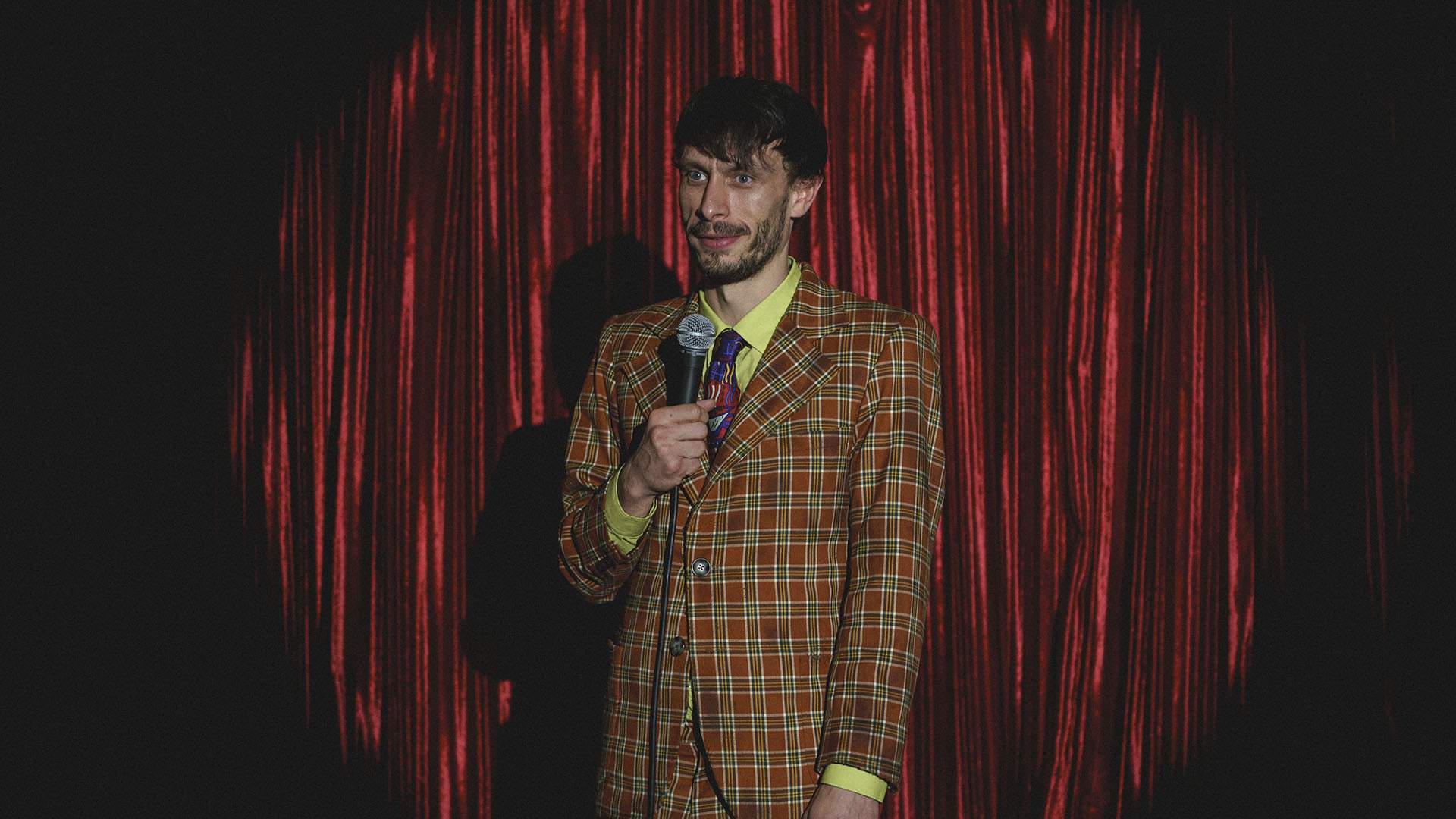Eleven 2025 Golden Globe-Winning Films and TV Shows That You Can (and Should) Watch Right Now
Make a cinema or couch date with a freshly minted Golden Globe-winner — here's what you can watch right away, and where.
If you're a film and TV obsessive, how do you know that a new year has kicked off? Hollywood starts handing out awards. Tinseltown loves starting off the annual calendar by looking backwards, giving away trophies and having parties, with the Golden Globes 2025's first ceremony to celebrate on-screen achievements from the past 12 months — in cinemas and on television.
2025's accolades, rewarding 2024's big- and small-screen fare, took place on Monday, January 6 Australian time. Accordingly, there's now a brand-new batch of Golden Globes recipients for viewers to watch — or rewatch. Some, like The Brutalist and Emilia Pérez, haven't made their way Down Under just yet (they each arrive later in January), but plenty of others are ready and waiting for audiences to catch ASAP.
Haven't seen Jesse Eisenberg (Fleishman Is in Trouble) and Kieran Culkin (Succession) play bickering cousins yet? Keen to relive every thrilling, heartbreaking and tense moment of Shogun? Fancy watching Baby Reindeer on your iPhon iPhone? Need a reason to shout "yes chef!". Feel like defying gravity? Eager for a dose of The Substance? They're just some of the 11 movies and TV shows that you can make a date with right now.
(Wondering what else won, too? Read through the full list as well.)

Movie Must-Sees
A Real Pain
He didn't feature on-screen in his first film as a writer/director, but 2022's When You Finish Saving the World couldn't have sprung from anyone but Jesse Eisenberg. Neither could've 2024's A Real Pain. In the latter, the Fleishman Is in Trouble actor plays the anxious part, and literally. He's David Kaplan, with his character a bundle of nerves about and during his trip to Poland with his cousin Benji (Kieran Culkin, Succession) — a pilgrimage that they're making in honour of their grandmother, who survived the Second World War, started a new life for their family in the US in the process and has recently passed away. David is highly strung anyway, though. One source of his woes: the ease with which Benji seems to move through his days, whether he's making new friends in their tour group within seconds of being introduced or securing a stash of weed for the journey. With A Real Pain as with When You Finish Saving the World, Eisenberg is shrewdly and committedly examining an inescapable question: what is real pain, and who feels it? Are David's always-evident neuroses more worthy of worry than the despondency that Benji shuttles behind his carefree facade, and is it okay for either to feel the way they do, with their comfortable lives otherwise, in the shadow of such horrors such as the Holocaust?
As a filmmaker, Eisenberg keeps interrogating what he knows: A Real Pain's main train of thought, which was When You Finish Saving the World's as well, is one that he ponders himself. Although he's not penning and helming strictly autobiographical movies, his latest does crib some details from reality, swapping out an IRL aunt for a fictional grandmother, as well as a trip that Eisenberg took with his wife for a cousins' act of tribute. It's no wonder, then, that he keeps crafting deeply felt features that resound with raw emotion, and that leave viewers feeling like they could walk right into them. With A Real Pain, he also turns in a stellar performance of his own and directs another from Culkin, who steps into Benji's shoes like he wears them himself everyday (and takes on a part that his director originally had earmarked for himself). Thrumming at the heart of the dramedy, and in its two main players, is a notion that demands facing head-on, too: that experiencing our own pain, whether big or small, world-shattering or seemingly trivial, or personal or existential, is never a minor matter.
Globes
Won: Best Performance by a Male Actor in a Supporting Role in Any Motion Picture (Kieran Culkin).
Where to watch it: A Real Pain is screening in cinemas Down Under.
Read our interview with Jesse Eisenberg.

The Substance
If you suddenly looked like society's ideal, how would it change your life? The Substance asks this. In a completely different way, so does fellow Golden Globe-winner A Different Man (see: below), too — but when Revenge's Coralie Fargeat is leading the charge on her long-awaited sophomore feature and earning Cannes' Best Screenplay Award for her troubles, the result is a new body-horror masterpiece. Pump it up: the sci-fi concept; the stunning command of sound, vision and tone; the savagery and smarts; the gonzo willingness to keep pushing and parodying; the gore (and there's gore); and the career-reviving performance from Demi Moore (Landman). The Substance's star has popped up in Feud, The Unbearable Weight of Massive Talent, Please Baby Please and Brave New World in recent years, but her work as Elisabeth Sparkle not only defines this period of her life as an actor; even with an on-screen resume dating back to 1981, and with the 80s- and 90s-era likes of St Elmo's Fire, Ghost, A Few Good Men, Indecent Proposal and Disclosure to her name, she'll always be known for this from this point onwards, regardless of whether awards keep rolling in.
Turning 50 isn't cause for celebration for Elisabeth. She's already seen film roles pass her by over the years; on her birthday, she's now pushed out of her long-running gig hosting an aerobics show. Enter a solution, as well as another 'what if?' question: if you could reclaim your youth by injecting yourself with a mysterious liquid, would you? Here, The Substance's protagonist takes the curious serum. Enter Sue (Margaret Qualley, Drive-Away Dolls), who helps Elisabeth wind back time — and soon wants Elisabeth's time as her own. Just like someone seeking the glory days that she thinks are behind her via any means possible, Fargeat isn't being subtle with The Substance, not for a second. She goes big and brutal instead, and audacious and morbid as well, and this is the unforgettable picture it is because of it. No one holds back — not Elisabeth, not Sue, not Moore, not the also-fantastic Qualley, not Dennis Quaid (Lawman: Bass Reeves) eating shrimp, not Fargeat, and definitely not cinematographer Benjamin Kracun (Promising Young Woman) or composer Raffertie (99).
Globes
Won: Best Performance by a Female Actor in a Motion Picture — Musical or Comedy (Demi Moore).
Where to watch it: The Substance streams via YouTube Movies, iTunes and Prime Video.

A Different Man
Two of 2024's best films have one person in common: Sebastian Stan. In cinemas in Australia, The Apprentice and A Different Man released within weeks of each other; as well as making a helluva double feature, they boast two of the finest performances of the year as well. In both movies, the former Gossip Girl star with the best taste in picking interesting parts — see also: Logan Lucky, I, Tonya, Destroyer, Monday, Fresh and Pam & Tommy — plays men chasing a dream that turns out to be a nightmare: once as a certain US real-estate tycoon-turned-reality TV host and then president, and once as a struggling actor who desperately wants a new face. When A Different Man's Edward Lemuel undertakes an experimental treatment for neurofibromatosis, his disfigurement disappears; however, his hopes for stardom, or even just to feature in his playwright neighbour's (Renate Reinsve, Presumed Innocent) off-Broadway production about his own life and attract her romantic interest, can't be grasped that easily. Also turning in an excellent portrayal is Adam Pearson (Ruby Splinter) as Oswald, who has a firmer grasp on the existence that Edward so feverishly covets without any medical intervention.
Writer/director Aaron Schimberg (Chained for Life) knows that The Elephant Man will spring to many audiences' minds — and astutely probes and questions why in a film that is unflinching in its exploration of perception, prejudice, identity, authenticity and self-worth. As it muses on what it takes to accept yourself and ignore the world's feedback, too, and whether external change can bring about an internal transformation, A Different Man also pairs exceptionally well with The Substance (see: above). Styling his feature as a psychological thriller as much as a black comedy, Schimberg refuses to let any moment pass by without needling, probing and unpacking. He digs into not only the mindsets that surround Edward, but equally explores the character's own view as he reinvents himself — with his new Sebastian Stan good looks — as newcomer Guy Moratz. It might have a few kindred spirits in various ways among 2024's highlights, but nothing else truly like this has reached screens in years.
Globes
Won: Best Performance by a Male Actor in a Motion Picture — Musical or Comedy (Sebastian Stan).
Where to watch it: A Different Man streams via YouTube Movies, iTunes and Prime Video.

Challengers
Tennis is a game of serves, shots, slices and smashes, and also of approaches, backhands, rallies and volleys. Challengers is a film of each, too, plus a movie about tennis. As it follows a love triangle that charts a path so back and forth that its ins and outs could be carved by a ball being hit around on the court, it's a picture that takes its aesthetic, thematic and emotional approach from the sport that its trio of protagonists are obsessed with as well. Tennis is everything to Tashi Duncan (Zendaya, Dune: Part Two), Art Donaldson (Mike Faist, West Side Story) and Patrick Zweig (Josh O'Connor, La Chimera), other than the threesome themselves being everything to each other. It's a stroke of genius to fashion the feature about them around the game they adore, then. Metaphors comparing life with a pastime are easy to coin. Movies that build such a juxtaposition into their fabric are far harder to craft. But it's been true of Luca Guadagnino for decades: he's a craftsman.
Jumping from one Dune franchise lead to another, after doing Call Me By Your Name and Bones and All with Timothée Chalamet, Guadagnino proves something else accurate that's been his cinematic baseline: he's infatuated with the cinema of yearning. Among his features so far, only in Bones and All was the hunger for connection literal. The Italian director didn't deliver cannibalism in Call Me By Your Name and doesn't in Challengers, but longing is the strongest flavour in all three, and prominent across the filmmaker's Suspiria, A Bigger Splash and I Am Love also. So, combine the idea of styling a movie around a tennis match — one spans its entire duration, in fact — with a lusty love triangle, romantic cravings and three players at the top of their field, then this is the sublime end product. Challengers is so smartly constructed, so well thought-out down to every meticulous detail, so sensual and seductive, and so on point in conveying Tashi plus Art and Patrick's feelings, that it's instantly one of Guadagnino's grand slams.
Globes
Won: Best Original Score — Motion Picture (Trent Reznor and Atticus Ross).
Where to watch it: Challengers streams via Prime Video, YouTube Movies and iTunes.
Read our full review, as well as what Zendaya, Josh O'Connor and Mike Faist had to say about the film when they were in Australia.

Wicked
The colour scheme was always a given. "Pink goes good with green," Galinda (Ariana Grande, Don't Look Up) tells Elphaba (Cynthia Erivo, Luther: The Fallen Sun). "It goes well with green," the grammar-correcting reply bounces back. The songs, beloved echoing from the stage since 2003, were never in doubt as both centrepieces and a soundtrack. As a theatre-kid obsession for decades, it was also long likely that the big-screen adaptation of Wicked — a movie based on a musical springing from a book that offered a prequel to a film that walked the celluloid road 85 years ago, itself jumping from the page to the screen — would have big theatre-kid energy as it attempted to ensure that its magic enchants across mediums. Enough to fill every theatre on Broadway radiates from Grande alone, someone who, as a kid, won an auction to meet the OG Wicked good witch Kristin Chenoweth (Our Little Secret) backstage. That enthusiasm is impossible not to feel.
No one would ever want a muted Wicked, where the hues, in yellow bricks and emerald cities and more, weren't trying to compete with Technicolor — and the tunes, with Chenoweth and Idina Menzel's (You Are So Not Invited to My Bat Mitzvah) voices previously behind them in such full force, weren't belted to the rafters. Jon M Chu has a knack as a filmmaker of stage hits reaching cinemas: matching the vibe of the show he's taking on expertly. It was true of his version of In the Heights. It now proves the case in its own different way with Wicked. Achieving such a feat isn't always a given; sometimes, even when it does happen, and blatantly, any stage spark can be lost in translation (see: Cats). Again, movie viewers can feel that synergy, and how much it means to everyone involved.
Globes
Won: Cinematic and Box Office Achievement.
Where to watch it: Wicked is screening in cinemas Down Under, and streams via YouTube Movies and Prime Video.
Read our interview with production designer Nathan Crowley.

Small-Screen Standouts
Hacks
Sometimes you need to wait for the things you love. In Hacks, that's true off- and on-screen. The HBO comedy gave viewers a two-year wait, after its first season was one of the best new shows of 2021 and its second one of the best returning series of 2022 — a delay first sparked by star Jean Smart (Babylon) requiring heart surgery, and then by 2023's Hollywood strikes. But this Emmy- and Golden Globe-winner returned better than ever in season three in 2024, this time charting Smart's Deborah Vance finally getting a shot at a job that she's been waiting her entire career for. After scoring a huge hit with her recent comedy special, which was a product of hiring twentysomething writer Ava Daniels (Hannah Einbinder, Julia), the Las Vegas mainstay has a new chance at nabbing a late-night hosting gig. (Yes, fictional takes on after-dark talk shows are having a moment, thanks to Late Night with the Devil and now this.)
At times, some in Deborah's orbit might be tempted to borrow the Australian horror movie's title to describe to assisting her pitch for a post-primetime chair. That'd be a harsh comment, but savage humour has always been part of this showbiz comedy about people who tell jokes for a living. While Deborah gets roasted in this season, spikiness is Hacks' long-established baseline — and also the armour with which its behind-the-mic lead protects herself from life's and the industry's pain, disappointments and unfairness. Barbs can also be Deborah's love language, as seen in her banter with Ava. When season two ended, their tumultuous professional relationship had come to an end again via Deborah, who let her writer go to find bigger opportunities. A year has now passed when season three kicks off. Ava is a staff writer on a Last Week Tonight with John Oliver-type series in Los Angeles and thriving, but she's also not over being fired. Back in Vanceland , everything is gleaming — but Deborah isn't prepared for being a phenomenon. She wants it. She's worked for years for it. It's taken until her 70s to get it. But her presence alone being cause for frenzy, rather than the scrapping she's done to stay in the spotlight, isn't an easy adjustment.
Globes
Won: Best Television Series — Musical or Comedy, Best Performance by a Female Actor in a Television Series — Musical or Comedy (Jean Smart).
Where to watch it: Hacks streams via Stan.
Read our full review.

Shōgun
Casting Hiroyuki Sanada (John Wick: Chapter 4), Cosmo Jarvis (Persuasion) and Anna Sawai (Monarch: Legacy of Monsters) as its three leads is one of Shōgun's masterstrokes. The new ten-part adaptation of James Clavell's 1975 novel — following a first version in 1980 that featured Japanese icon and frequent Akira Kurosawa collaborator Toshiro Mifune — makes plenty of other excellent moves, but this is still pivotal. Disney+'s richly detailed samurai series knows how to thrust its viewers into a deeply textured world from the outset, making having three complex performances at its centre an essential anchoring tactic. Sanada plays Lord Yoshii Toranaga, who is among the political candidates vying to take control of the country. Jarvis is John Blackthorne, a British sailor on a Dutch ship that has run aground in a place that its crew isn't sure is real until they get there. And Sawai is Toda Mariko, a Japanese noblewoman who is also tasked with translating. Each character's tale encompasses much more than those descriptions, of course, and the portrayals that bring them to the screen make that plain from the moment they're each first seen.
As Game of Thrones and Succession both were, famously so, Shōgun is another drama that's all about fighting for supremacy. Like just the former, too, it's another sweeping epic series as well. Although it's impossible not to see those links, knowing that both battling over who'll seize power and stepping into sprawling worlds are among pop culture's favourite things right now (and for some time) doesn't make Shōgun any less impressive. The scale is grand, and yet it doesn't skimp on intimacy, either. The minutiae is meticulous, demanding that attention is paid to everything at all times. Gore is no stranger from the get-go. Opening in the 17th century, the series finds Japan in crisis mode, Toranaga facing enemies and Blackthorne among the first Englishmen that've made it to the nation — much to the alarm of Japan's sole European inhabitants from Portugal. Getting drawn in, including by the performances, is instantaneous. Shōgun proves powerful and engrossing immediately, and lavish and precisely made as well, with creators Justin Marks (Top Gun: Maverick) and Rachel Kondo (on her first TV credit) doing a spectacular job of bringing it to streaming queues.
Globes
Won: Best Television Series — Drama, Best Performance by a Male Actor in a Television Series — Drama (Hiroyuki Sanada), Best Performance by a Female Actor in a Television Series — Drama (Anna Sawai), Best Performance by a Male Actor in a Supporting Role on Television (Tadanobu Asano).
Where to watch it: Shōgun streams via Disney+.
Read our full review.

Baby Reindeer
A person walking into a bar. The words "sent from my iPhone". A comedian pouring their experiences into a one-performer play. A twisty true-crime tale making the leap to the screen. All four either feature in, inspired or describe Baby Reindeer. All four are inescapably familiar, too, but the same can't be said about this seven-part Netflix series. Written by and starring Scottish comedian Richard Gadd, and also based on his real-life experiences, this is a bleak, brave, revelatory, devastating and unforgettable psychological thriller. It does indeed begin with someone stepping inside a pub — and while Gadd plays a comedian on-screen as well, don't go waiting for a punchline. When Martha (Jessica Gunning, The Outlaws) enters The Heart in Camden, London in 2015, Donny Dunn (Gadd, Wedding Season) is behind the counter. "I felt sorry for her. That's the first feeling I felt," the latter explains via voiceover. Perched awkwardly on a stool at the bar, Martha is whimpering to herself. She says that she can't afford to buy a drink, even a cup of tea. Donny takes pity, offering her one for free — and her face instantly lights up. That's the fateful moment, one of sorrow met with kindness, that ignites Baby Reindeer's narrative and changes Donny's life.
After that warm beverage, The Heart instantly has a new regular. Sipping Diet Cokes from then on (still on the house), Martha is full of stories about all of the high-profile people that she knows and her high-flying lawyer job. But despite insisting that she's constantly busy, she's also always at the bar when Donny is at work, sticking around for his whole shifts. She chats incessantly about herself, folks that he doesn't know and while directing compliments Donny's way. He's in his twenties, she's in her early forties — and he can see that she's smitten, letting her flirt. He notices her laugh. He likes the attention, not to mention getting his ego stroked. While he doesn't reciprocate her feelings, he's friendly. She isn't just an infatuated fantasist, however; she's chillingly obsessed to an unstable degree. She finds his email address, then starts messaging him non-stop when she's not nattering at his workplace. (IRL, Gadd received more than 40,000 emails.)
Globes
Won: Best Television Limited Series, Anthology Series or Motion Picture Made for Television, Best Performance by a Female Actor in a Supporting Role on Television (Jessica Gunning).
Where to watch it: Baby Reindeer streams via Netflix.
Read our full review.

The Bear
Serving up another sitting with acclaimed chef Carmy Berzatto (Jeremy Allen White, The Iron Claw), his second-in-charge Sydney (Ayo Edebiri, Inside Out 2) and their team after dishing up one of the best new shows of 2022 and best returning shows of 2023, the third season of The Bear is a season haunted. Creator and writer Christopher Storer (Dickinson, Ramy) — often the culinary dramedy's director as well — wouldn't have it any other way. Every series that proves as swift a success as this, after delivering as exceptional a first and second season as any show could wish for, has the tang of its prior glory left on its lips, so this one tackles the idea head on. How can anyone shake the past at all, good or bad, the latest ten episodes ruminate on as Carmy faces a dream that's come true but hasn't and can't eradicate the lifetime of internalised uncertainty that arises from having an erratic mother, absent father, elder brother he idolised but had his own demons, and a career spent striving to be the best and put his talents to the test in an industry that's so merciless and unforgiving even before you factor in dealing with cruel mentors.
Haunting is talked about often in this third The Bear course, but not actually in the sense flavouring every bite that the show's return plates up. In the season's heartiest reminder that it's comic as well as tense and dramatic — its nine Emmy wins for season one, plus four Golden Globes across season one and two, are all in comedy categories — the Faks get to Fak aplenty. While charming Neil (IRL chef Matty Matheson) is loving his role as a besuited server beneath Richie aka Cousin (Ebon Moss-Bachrach, No Hard Feelings), onboard with the latter's commitment to upholding a Michelin star-chasing fine-diner's front-of-house standards and as devoted to being Carmy's best friend as ever, he's also always palling around with his handyman brother Theodore (Ricky Staffieri, Read the Room). They're not the season's only Faks, and so emerges a family game. When one Fak wrongs another, they get haunted, which is largely being taunted and unsettled by someone from basically The Bear equivalent of Brooklyn Nine-Nine's Boyles. For it to stop, you need to agree to give in. In Storer's hands, in a series this expertly layered as it picks up in the aftermath of sandwich diner The Original Beef of Chicagoland relaunching as fine-diner The Bear, this isn't just an amusing character-building aside.
Globes
Won: Best Performance by a Male Actor in a Television Series — Musical or Comedy (Jeremy Allen White).
Where to watch it: The Bear streams via Disney+.
Read our full review.

The Penguin
Ambition courses through The Penguin, both within its storyline and in bringing the spinoff from 2022's The Batman to the small screen. HBO might be giving a swathe of its cinema hits the TV treatment, including Dune, IT, Harry Potter and The Conjuring; however, there's nothing by the numbers about Oswald Cobb's time in the television spotlight. With Colin Farrell reprising the show's titular role, and starring in two of 2024's standout new series in the process alongside Sugar, The Penguin isn't a mere attempted caped-crusader cash-in, as some fare about nefarious folks connected to well-known heroes have proven (see: Morbius, Madame Web and Kraven the Hunter). Across its compulsively watchable eight-episode first season, this crime drama has more than a touch of The Sopranos and The Godfather films about it — and not only is it aiming high in endeavouring to follow in the footsteps of two of the greatest mob stories ever told but, as developed and co-written by Lauren LeFranc (Impulse, Agents of SHIELD), it heartily earns its place in their company. Never forgetting who it is about and what Oz's future path is, no matter how much viewers start to warm to him throughout the series, The Penguin is also responsible for one of the most-heartbreaking moments of the past year.
Set after the events of The Batman — a big-screen sequel to which, aka The Batman — Part II, is on the way — the show steps back into Oz's life as he's chasing his own ambitions. After years spent as an underling, including as the righthand man to Carmine Falcone (Mark Strong, Dune: Prophecy), he has his sights set on more than just doing everyone else's bidding. Complicating this quest for power: that it coincides with the release of Carmine's daughter Sofia (Cristin Milioti, The Resort) from Arkham, and she isn't willing to simply do what she's told by the new Falcone underboss (Michael Kelly, Pantheon). As Oz navigates a turf war also involving incarcerated rival Sal Marone (Clancy Brown, Gen V), The Penguin keeps his exploits personal through his demential-afflicted mother (Deirdre O'Connell, The Big Door Prize) requiring his care, and with kindhearted teenager Vic Aguilar (Rhenzy Feliz, Encanto) trying to steal Oz's rims but ending up with a job as his driver. A grounded waddle into the supervillain realm, and boasting exceptional — and rightly Golden Globe-winning and -nominated, respectively — performances from Farrell and Milioti, this is comics-to-screen storytelling at its best.
Globes
Won: Best Performance by a Male Actor in a Limited Series, Anthology Series or a Motion Picture Made for Television (Colin Farrell).
Where to watch it: The Penguin streams via Binge.

True Detective: Night Country
Even when True Detective had only reached its second season, the HBO series had chiselled its template into stone: obsessive chalk-and-cheese cops with messy personal lives investigating horrifying killings, on cases with ties to power's corruption, in places where location mattered and with the otherworldly drifting in. A decade after the anthology mystery show's debut in 2014, True Detective has returned as Night Country, a six-part miniseries that builds its own snowman out of all of the franchise's familiar parts. The main similarity from there: like the Matthew McConaughey (The Gentlemen)- and Woody Harrelson (White House Plumbers)-led initial season, True Detective: Night Country is phenomenal. This is a return to form and a revitalisation. Making it happen after two passable intervening cases is a new guiding hand off-screen. Tigers Are Not Afraid filmmaker Issa López directs and writes or co-writes every episode, boasting Moonlight's Barry Jenkins as an executive producer. True Detective creator Nic Pizzolatto remains in the latter role, too, as do McConaughey, Harrelson and season-one director Cary Joji Fukunaga (No Time to Die); however, from its female focus and weighty tussling with the dead to its switch to a cool, blue colour scheme befitting its Alaskan setting, there's no doubting that López is reinventing her season rather than ticking boxes.
In handing over the reins, Pizzolatto's police procedural never-standard police procedural is a powerhouse again, and lives up to the potential of its concept. The commitment and cost of delving into humanity's depths and advocating for those lost in its abyss has swapped key cops, victims and locations with each spin, including enlisting the masterful double act of Jodie Foster (Nyad) and boxer-turned-actor Kali Reis (Catch the Fair One) to do the sleuthing, but seeing each go-around with fresh eyes feels like the missing puzzle piece. López spies the toll on the show's first women duo, as well as the splinters in a remote community when its fragile sense of certainty is forever shattered. She spots the fractures that pre-date the investigation in the new season, a cold case tied to it, plus the gashes that've carved hurt and pain into the earth ever since people stepped foot on it. She observes the pursuit of profit above all else, and the lack of concern for whatever — whoever, the region's Indigenous inhabitants included — get in the way. She sees that the eternal winter night of 150 miles north of the Arctic Circle come mid-December isn't the only thing impairing everyone's sight. And, she knows that not everything has answers, with life sometimes plunging into heartbreak, or inhospitable climes, or one's own private hell, without rhyme or reason.
Globes
Won: Best Performance by a Female Actor in a Limited Series, Anthology Series or a Motion Picture Made for Television (Jodie Foster).
Where to watch it: True Detective: Night Country streams via Binge.
Read our full review.
